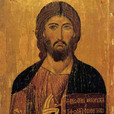
Summary: This week’s episode is titled, “Patrick”Last week’s episode was a brief review of Christianity’s arrival in Britain. We saw how the Anglo-Saxons pressed in from the east coast where they’d been confined by what remained of the Roman army. But when the Roman’s pulled out in 410, the Saxons quickly moved in to take their place, confining the Romano-British Christians to the western region of the Island. It was from that shrinking enclave of faith that a spark of faith leapt the Irish Sea to land in the dry tinder of Celtic Ireland. That spark’s name was Patrick.While there’s much legend surrounding Patrick’s life, there’s scant hard historical evidence for the details of his story. We have little idea when or where he was born, where he lived & worked, when & where he died, & other important specifics. What we do have are incidental clues & his own records, vague as they are.The record of Christianity in Ireland prior to Patrick is sketchy. A bishop named Palladius was appointed by Pope Celestine to the island, but he didn’t stay long. He left the same year Patrick arrived.Patrick was born into an affluent & religious home. His father was a deacon; his grandfather a priest. The family was likely of the Romano-British nobility & owned minor lands along the shores of western Britain. Several locations claim to be Patrick’s ancestral home. At the age of 16, he was captured by Irish slavers who regularly raided Britain’s coast. He was taken back to Ireland & sold into captivity.Patrick recounts little of his 6 yrs as a slave except to say he was a shepherd or swine-herd who spent long periods tending his charges. Being a slave, he endured long periods of hunger, thirst & isolation. This trial moved him to seek God in earnest. The faith of his parents became his own.Years later, in writing what is known as his Confessio, Patrick said he believed his slavery was discipline for spiritual apathy. Not only did he attribute his own slavery as the chastening of the Lord, he said thousands of fellow Britons also suffered for the same reason. He came to see the discipline as God’s grace because it led him to God. He wrote -More and more, the love of God and the fear of Him grew in me, and my faith was increased and my spirit enlivened. So much that I prayed up to a hundred times in the day, and almost as often at night. I even remained in the wood and on the mountain to pray. And—come hail, rain, or snow—I was up before dawn to pray, and I sensed no evil nor spiritual laziness within.At 22, Patrick said he heard a supernatural Voice calling him to fast in preparation for returning home. Not long after, the Voice spoke again: ‘Behold! Your ship is prepared.’ The problem was, Patrick was 200 miles from the sea. Confident he followed the direction of God, he struck out for the coast. When he arrived & informed the captain he was supposed to board, the captain recognized him as a runaway slave and refused. Patrick realized now his situation was precarious and looked for a place to hide. Seeing a nearby hut he began to make his way there when one of the crew shouted at him to hurry up and board. It seems the crew was short-handed & thought to use Patrick as extra a novice seaman, paying for his fare by the hard work of a lowly deck-hand.The ship set sail & 3 days later landed. Where is a bit of a mystery as Patrick is vague at this point. The best guess was northern Gaul. He says once they landed the crew wandered in a kind of wilderness for nearly a month. We do know that between 407 & 410, the Goths & Vandals ran amok across this region. Things grew desperate and the captain began to berate Patrick, mocking his trust in an all-powerful, all-loving God. Where was all that power and love now that they were in danger of starving to death? Patrick wasn’t intimidated by the challenge. As we’ll see, this kind of opportunity called forth from Patrick an even
